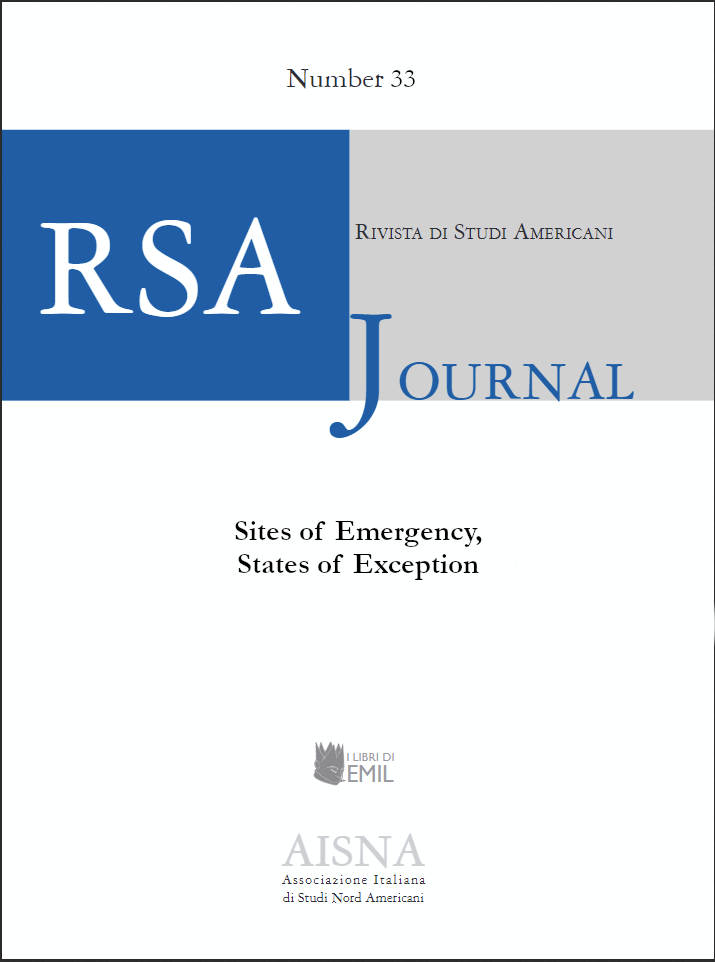The Provisional Utopia and the State of Exception
On “Ceremony” and “The Stand”
DOI:
https://doi.org/10.13135/1592-4467/8425Keywords:
Utopia, State of Exception, survivalist rhetorics, post-traumatic stressAbstract
Both written in the late 1970s, Leslie Marmon Silko’s Ceremony and Stephen King’s The Stand participated in the contemporary revision of the notion of utopia highlighted by critics such as Fredric Jameson, Tom Moylan, and Darko Suvin. I argue that in both novels this revision occurs because they stage, in different ways, a refusal of solutions akin to Schmitt’s and Agamben’s state of exception, shown as inadequate to the task of rebuilding a sense of community in the aftermath of radical crises. Silko’s 1977 landmark in Native American fiction is the story of WW2 veteran Tayo who turns to the ceremonies of his people’s oral culture in his search for healing, a way out of his post-traumatic stress, presented as a personal analogue to the drought affecting his Laguna Pueblo reservation. In the shadow of white people’s wars, including nuclear experiments, the native tradition must meet forms of renewal, capable of rejecting the threat of downward spirals of individual and collective counter-violence. King’s 1978 post-apocalyptic novel juxtaposes genres, from realism to science fiction and religious fantasy. In the aftermath of disasters that include deindustrialization, a global pandemic spawned by military research, and the Bomb, The Stand gathers a polyphony of viewpoints, with a sophisticated encyclopedia of cultural allusions, from literature to rock music, to approach and challenge many facets of US national self-confidence, from expansionist rhetoric to racial conflicts, self-consciously aimed at contesting survivalist rhetorics of emergency. Both novels include a pars construens, in which survivors to literal and cultural world-shattering catastrophes try to imagine their future as novum, in contrast to scenarios of extraordinary measures breaching rules of law and human dignity, a reconstruction presented as inseparable from the ecosphere’s healing, and above all as provisional – its self-doubt the evidence of a lasting awareness, grounds for utopian hope.
Downloads
Published
Issue
Section
License
RSAJournal will apply a CC BY 4.0 license to all its contributions starting with issue 37 (2026). Previous issues are licensed under a CC BY-NC-ND licence.





